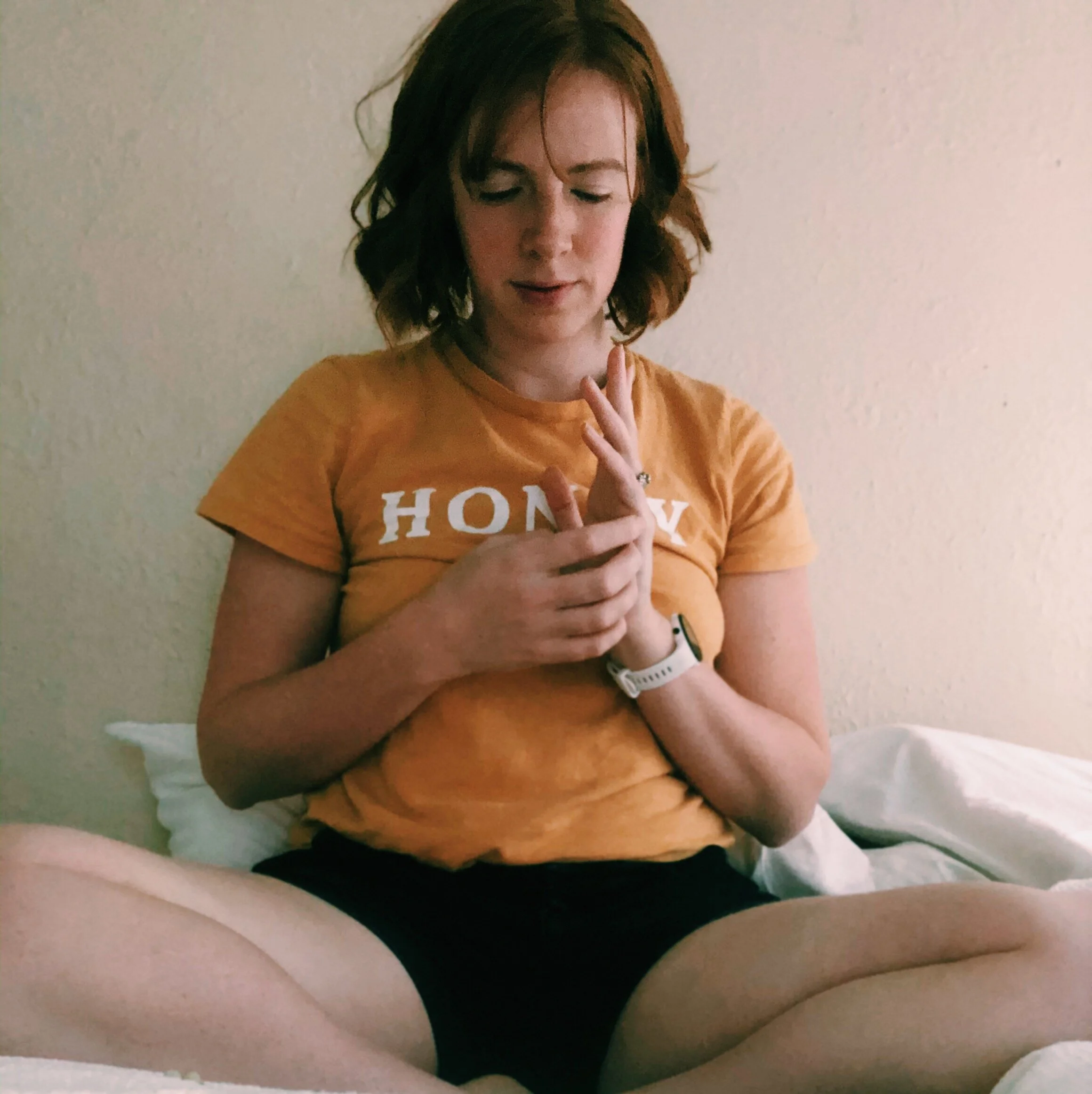I have a tendency to pack my plate (my metaphorical plate, my schedule, is what I mean here. Although if you've ever seen me at a buffet, I will pack my literal plate also) with lots of things.
I love to create ideas. I have GREAT ideas and I love to think up new ones. I love to say YES to opportunities that sound fun and challenging.
And I often get stuck in a cycle repeating the same actions: 1. I create and say yes to lots of fun opportunities 2. I try to do everything at once 3. I start getting tired. Burned out. Overwhelmed 4. I quit everything and start the cycle over again.
And I have a thought about this, when I'm in the cycle. The thought goes something like "I struggle to find balance."
This is a thought I've accepted as truth about myself for a long time. I've accepted it as part of my personality. But it's not necessarily true - just a thought. ( I bet you have thoughts like that too!)
How do I mean? Well, for that thought to be true, there'd have to be an actual, irrefutable point of "balance". And there's simply not.
Trying to find the point of "balance" in a human life is like trying to find the ideal level of a flowing river. It's something you might arrive at for a moment, but it can't be maintained for long periods of time. Sometimes the river will run low. Sometimes it will overflow it's banks. And normally it will be at some level in between those two points, and occasionally it will, for a matter of moments or maybe days, be at it's "balanced" point.
My human life is like a flowing river. Expecting myself to find and maintain balance is pretty unreasonable.
Photo by Jeremy Bishop on Unsplash
So today I found an accessible new thought to try on (what? You can just try on thoughts? Like trying on outfits? Yup. Yes you can!)
The new thought goes something like this: I am under no obligation to anyone, not even to myself, to do everything I can do or everything I want to do. I am still enough, even if I don't complete every project, say yes to every opportunity, and execute every plan.
I like this new thought because it's objectively true. I won't be attacked by some cosmic judge for ordering takeout instead of meal prepping every night. My husband won't leave me because I didn't get the laundry folded. And my friends won't hate me forever if I back out of a plan last minute.
Because sometimes I have all the energy and I want to do all the things. And sometimes I do not want to do any of the things. And most often, I fall somewhere in between.
It feels rebellious to my perfectionist-programmed brain, but I can recognize it as logically true. So that's helpful.
I think it's a good practice to look at your thoughts, even the thoughts you've held for years and years and accepted as just "part of who you are" and then decide a) whether you believe them, b) whether you want to believe them and then c) what a new, better-feeling thought might be.







